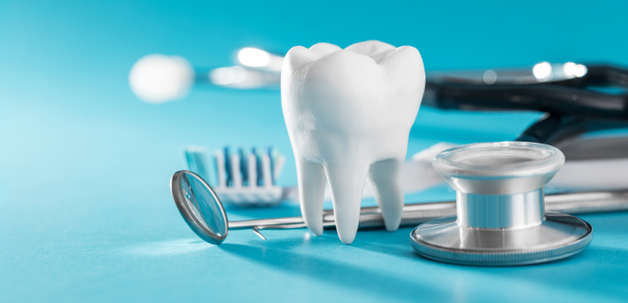Here, the Association of Dental Groups (ADG) looks at the work of the Teeth Team programme and how the support of key dental groups/practices has helped to develop the initiative.
According to the latest figures, more than 40,800 hospital operations took place to remove rotting teeth in children and teenagers last year – that’s more than 160 operations a day.(i) In the Children’s Dental Health Survey,(ii) the findings had revealed some progress in the way of caries reduction, but if the most recent statistics are anything to go by, it is clear that there is still a long way to go.
One of the biggest problems, however, is still the impact of regional and social inequalities on the standard of children’s oral health and the prevalence of dental caries. One of the worse affected areas is the Yorkshire and Humber region according to the results of a Public Health England national survey(iii). Figures showed that 28.5 per cent of children examined had obvious signs of decay. In the City of Hull, caries was detected in a staggering 37.8 per cent of children.
On a national level, there have been a number of initiatives implemented to address the issue of dental caries, but in order to make an impact in areas of deprivation, regional schemes must continue to play an active role. One such project attempting to reduce inequalities in oral health amongst children is Teeth Team – an award winning, nationally recognised programme, which is facilitated within the City of Hull and East Riding of Yorkshire.
To address the issue, Teeth Team provides a supervised daily tooth brushing programme, with the addition of annual dental assessments and bi-annual applications of fluoride varnish. Parent and child oral health education sessions play an important role in its campaign too. Indeed, by increasing knowledge and raising awareness of potential risk factors of dental disease, the team hopes to encourage a preventive approach – dental caries is an entirely preventable disease after all.
With the help of a number of partnerships the initiative has continued to expand its reach, which as Julie Fountain, a Trustee of the Teeth Team, explains, has been crucial to the development of the programme.
“A supportive network has been imperative to the success of Teeth Team,” she says. “Without the help of a number of companies and organisations, we would not have been able to expand the programme to reach more children and reduce dental inequalities. Our collaborations with 543 Dental Centre (the Managing Director is the Chairman of Teeth Team), Alpha Dental and {my} dentist, who provide dentists and staff to carry out dental assessments and fluoride varnish applications on an annual basis, have been particularly invaluable.
“Equally as valuable is the support that we receive from local independent practices, all of which offer their valuable time and resources to improve the oral health of children in areas of high deprivation.”
Originally delivering its programme within the City of Hull and East Riding areas, Teeth Team has expanded into North Yorkshire, Nottingham North, South Humberside and parts of Lincolnshire. “In 2016, we were approached by Mr Graham Allen MP for Nottingham North who, with his charity Rebalancing the Outer Estates Foundation, wanted to try and tackle dental decay and the lack of access in his constituency,” Julie explains.
“With the help of {my} dentist and Florin Vulpoiu, a general dental practitioner in Nottingham North, we are now involved with three more schools in that area. In 2017, we will be providing oral care for more children in a number of other primary schools thanks to further support from the Yorkshire Deanery and Alpha Dental.
“And that’s not all – Teeth Team is working in partnership with Simplyhealth, parent company of Denplan to move further forward. This collaboration alone has given Teeth Team the ability to extend care to a further 50 schools across a number of regions, with opportunity to expand in the future.
“The charity’s aim is to continue to set up and provide oral health care to children in disadvantaged regions as well as broaden the work force and reporting capacity that enables us to deliver the programme. The latter has already seen some development, thanks to the Yorkshire Deanery’s decision to allow Foundation dentists to volunteer to work with Teeth Team in primary schools.
“Our long-term goal is to expand the programme nationally and for all children to have the necessary knowledge and skills passed on to them so that they have the foundations for better dental health for life, for themselves and for their children.”
Teeth Team is an example of action that can be taken to make a difference to children’s oral health. It is a reminder to us all about the importance of working together and the benefits that corporate companies and independent practices alike can bring to the table.
For more information about the ADG visit www.theadg.co.uk
References
i. Local Government Association. More than 160 operations a day to remove rotting teeth in children. Published online 11 January. Accessed online 19 January 2017 here.
ii. Children’s Dental Health Survey. Executive Summary: England, Wales and Northern Ireland. Accessed online 19 January 2017 here.
iii. Public Health England. National Dental Epidemiology Programme for England: oral healyh survey of five-year-old children in 2015. A report on the prevalence and severity of dental decay. Accessed online 20 January 2017 here.

